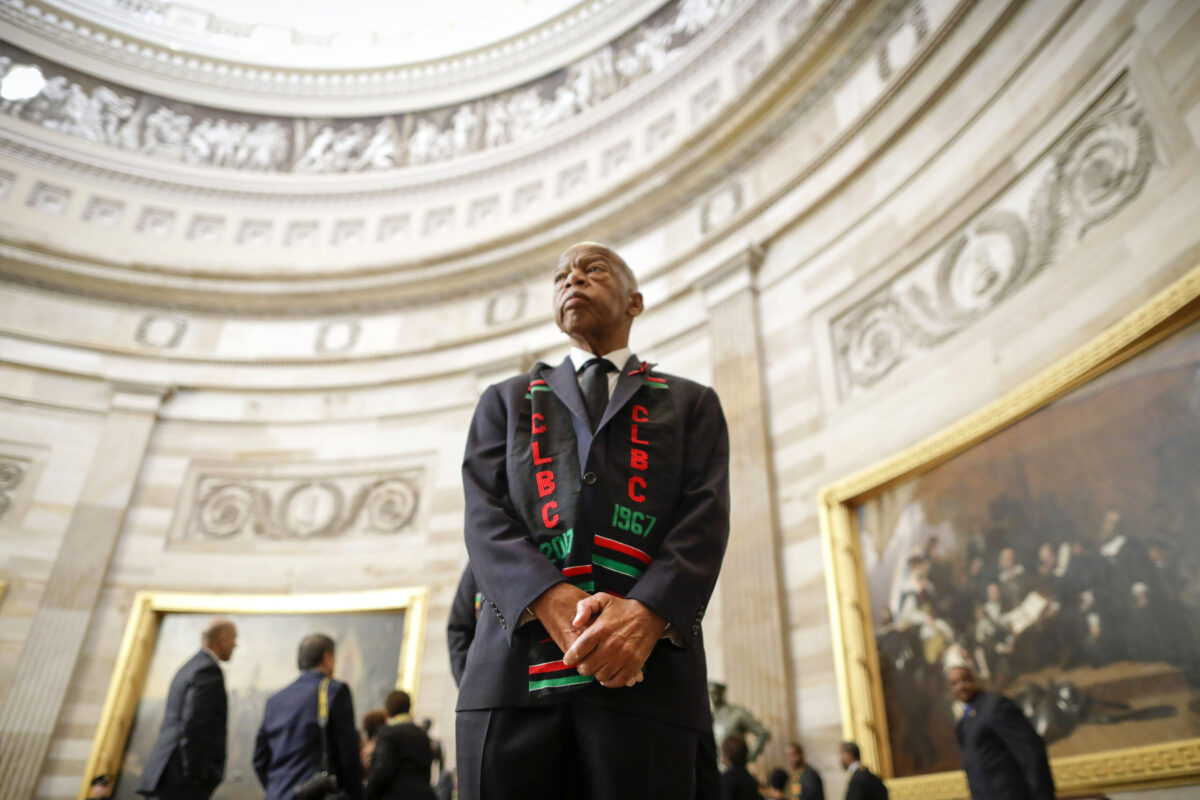John Lewis’ Speech From the March on Washington Is Still All Too Relevant 60 Years Later

The March on Washington for Jobs and Freedom took place 60 years ago this week, on August 28, 1963, in Washington, D.C., and was one of the most profoundly important events in Civil Rights history. An estimated 250,000 people gathered to protest injustices against African American people and to demand fair labor practices. To this day, it remains one of the biggest political protests ever organized in American history.
The event is probably best remembered for Martin Luther King Jr.’s monumental “I Have a Dream” speech which was delivered at the rally. But there were many prominent Civil Rights leaders who spoke that day, including Whitney Young, Roy Wilkins, A. Philip Randolph, Floyd McKissick, and more. John Lewis was one of them, and the late activist-turned-U.S. Congressman gave an incredibly poignant and impactful speech that, unfortunately, still rings true to this day.
The speech starts off with a chilling statement: “We march today for jobs and freedom, but we have nothing to be proud of. For hundreds and thousands of our brothers are not here. For they are receiving starvation wages, or no wages at all.” 60 years later and all of that is still true. Black Americans are still on average significantly poorer than whites. Black people have fewer job opportunities, fewer education resources at hand, and are far more likely to die at the hands of law enforcement than any other group.
We live in a country that still hasn’t given proper reparations to the horrors of slavery. Democrats claim to care about Black folk and other minority and marginalized groups but as we’ve seen time and again, the party has withered and allows fascists too much freedom of conduct. We have lost so many rights, including the essential right to abortion, and the 2024 elections look rather grim if we don’t get a left-leaning candidate who’d actually care about the marginalized.
Lewis knew this, at the time. In his speech, he called out good-on-paper legislation that doesn’t go nearly far enough to actually protect Back people. “[What] political leader can stand up and say, ‘My party is the party of principles’?” he said. “Where is our party? Where is the political party that will make it unnecessary to march on Washington?” Where is that party even now, 60 years later?
Lewis and others like MLK also criticized the white moderate, who’d rather society’s downtrodden work at the glacial pace of conservative bureaucracy, rather than immediate justice and reform. In his speech, Lewis said this about waiting for human rights:
To those who have said, “Be patient and wait,” we have long said that we cannot be patient. We do not want our freedom gradually, but we want to be free now! We are tired. We are tired of being beaten by policemen. We are tired of seeing our people locked up in jail over and over again. And then you holler, “Be patient.” How long can we be patient? We want our freedom and we want it now. We do not want to go to jail. But we will go to jail if this is the price we must pay for love, brotherhood, and true peace.
And he’s right. We, like many other marginalized, are tired of waiting for change. Every day, non-white people, queer people, people with disabilities, and so on are brutalized with no respite. This is especially true for Black queer and trans people, who are currently facing some of the largest human rights violations in recent memory.
So, remember the words of Lewis and the March, but let us not be passive about it. Civil Rights are under threat as we speak, and we must do more than performative remembrance. None of this means anything unless we fight to enshrine it for good.
(featured image: Pablo Martinez Monsivais-Pool/Getty Images)
Have a tip we should know? tips@themarysue.com